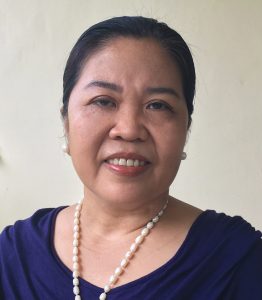
FILIPINO culture tends to praise lighter skin – a sentiment that can be very loudly expressed in the country. As a young girl, those comments left seeds of insecurity that only blossomed with age.
The statement above gripped my heart, especially that it came from a sweet daughter of dear friends whom I met abroad.
Tricia Jesuthason,17, was born from a Filipino mother and an Indian-Malaysian father. She was a smart little girl when I met her family many years ago. When I asked her how it feels to be half-blooded Filipino, her short response carried the weight of wisdom and a beautiful outlook in life which made me want to learn more from her own perspective and experience. So, I asked her to write more for this week’s column.
Growing up as half-Filipino has been a unique experience which I’m very thankful for. Though I haven’t spent much of my life living in the Philippines, despite being born there, I’ve had my fair share of experiences that come with being half Pinoy.
Admittedly, it can be a little difficult feeling Filipino. With the other half of my ethnicity consisting of very strong Indian genes, I don’t pass as any part Filipino at first glance. Filipino culture tends to praise lighter skin – a sentiment that can be very loudly expressed in the country. As a young girl, those comments left seeds of insecurity that only blossomed with age.
One question I’m always asked is whether I can speak Tagalog, and while I’ve tried to learn the language, the best I can do is understand bits of day-to-day conversations that I manage to piece together in my head. I wouldn’t be able to repeat the words if I tried, but I could tell when my mom is talking about me with her relatives in her dialect.
Something I always miss when not in the Philippines is, naturally, the food; visits to my mom’s hometown ensure that I’m stuffed with second and third rounds of home-cooked food, always being egged on by relatives to eat more, which I gladly do. While I’ll admit that I’m not the most enthusiastic about certain traditional dishes, i.e., dinuguan, I love the bold delivery of sweet, sour, and salty flavours that are such an important part of Filipino cuisine.
Filipino culture is vibrant, teeming with a certain easy-going hope that isn’t apparent in many other cultures. Spending time in the country is always a joy, and I haven’t had a visit to the Philippines that wasn’t brimming with laughter. The slogan “It’s more fun in the Philippines” is strongly merited because it is a culture that knows how to enjoy life. From parties to casual conversations between friends and family, the joyous energy is not hard to see.
While being born of mixed-race means, I was bound to have trouble navigating my identity, sometimes even wishing I was 100% something instead of incomplete halves. I’m proud of the parts that make me who I am, and I will always appreciate being half-Pinoy. I’m thankful to have been surrounded by such a rich culture from such an early age. From its amazing food to its family-oriented way of life, the Philippines has so much to offer, and so much I’m glad to have come across.
I have a Filipino – African nephew, and his prominent look (afro hair and dark skin) concerns me and made me want to protect him from possible bullying especially when he becomes a teenager. Much as I wanted to know, he doesn’t express much about how he feels when teased by playmates about how he is different. So, Tricia’s perspective gave me a glimpse of my nephew’s inner world and her resilience made me hopeful that my nephew will also know how to handle things on his own if he is surrounded with people who make him feel loved, accepted, and secured.
Tricia grew up in a loving home. Her parents are proactive in learning life-long lessons in parenting. I recently attended an online parenting class with her mom, and I am blessed of her and her husband’s humility to continue learning from others, especially from older couples, on how to build a strong and God-pleasing family. Tricia and her younger brother remain secure even when their family have moved places, exposed to different cultures while they were growing up.
